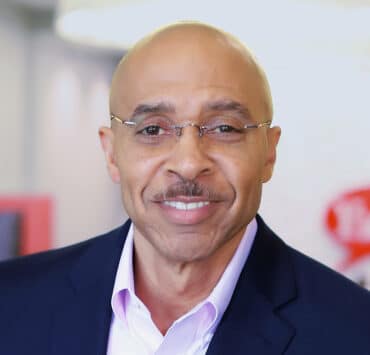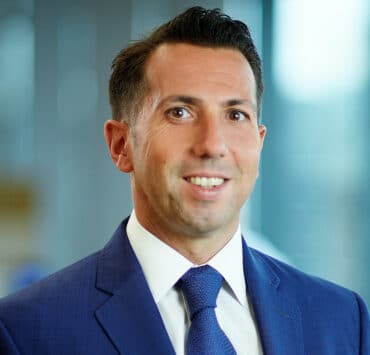|
Getting your Trinity Audio player ready... |
There is no separation for Chandra Bradley. The senior director of enterprise risk management at Oportun, responsible for all things risk management, also founded the Black Professionals Employee Resource Group (ERG). She sees equal need for empathy in both work and personal lives.
Bradley has found great success in bridging areas where others may see a divide. This includes humanity in risk management and governance, the need to be one’s true self in any environment, and even meditation in movement. That latter she achieves through “walking meditations,” which she describes as refreshing and educational.
Bradley was raised by two Belizean immigrants in the suburbs of Los Angeles, earned a degree from Pitzer College, and arrived at Oportun after spending two decades working in the financial sector. But it was her early career in consulting work that set her up for a future rife with success.
“I had so many amazing mentors early on who taught me business acumen and risk management,” Bradley recalls. “But they also taught me a lot of life skills. How to best handle living on the road, how to enjoy locations we stayed at for months at a time, and how to best dress for winter in Lincoln, Nebraska. These people took an interest in my professional development and provided a really supportive environment for growth.”
“When we feel comfortable and confident in bringing our authentic selves to work, there’s a strong correlation to how we thrive professionally and personally.”
Chandra Bradley
That’s why Bradley has such a strong interest in helping develop her younger colleagues. She has worked with summer interns throughout her career as well as nonprofits that aid young people. The senior director encourages those fresh in their career to take a consulting gig, see the world, and develop discipline in driving results while learning from their experiences.
After absorbing as much as she could from traditional financial services spaces, Bradley was excited to come to Oportun because of its impactful and growing role in the fintech space. The role would be an incredible experiment in utilizing risk management strategies to positively impact the organization’s role in disrupting the financial services space.
This is where empathy plays a critical role.
“Enterprise risk is all about creating a top-down enterprise view of risk across an organization,” Bradley explains. “These are the most significant risks that can either threaten our ability to achieve our objectives and create opportunities to accelerate the achievement of those objectives. You need to be curious about people’s lives and interests, motivators, and limiting beliefs. Risk isn’t tangible widgets; it’s very complex and can often be very ambiguous.”
Bradley says that cultivating an empathetic mindset factoring in the emotional and social considerations of risk has helped her better understand that ambiguity, and how to make that risk management more effective. More empathy-driven tools will ultimately make risk response and reporting strategy a more entrenched component of a healthy risk culture.
Empathy is another reason why Bradley helped found the Black Professionals ERG. After serving as an informal mentor for career advice, compassion, and understanding, Bradley saw 2020 as an important moment to create a community for Oportun’s Black employees.
“This is my first journey into ERG leadership but seeing all of the social injustice of 2020 just made me reach out to a number of Black colleagues because I knew I couldn’t be the only one who was feeling overwhelmed and dismayed,” Bradley says. “That was the impetus for finding others that identified like me and had a certain lens with how they viewed the world and what was happening around us.”
The ERG has enabled the building of a community, one where people of like experiences can support each other, hear one another, and increase their own feelings of belonging, security, and acceptance. Bradley knows what seeing Black leaders elevated to leadership positions can truly do for an organization that wants to walk its talk.
“You need to be curious about people’s lives and interests, motivators, and limiting beliefs. Risk [management] isn’t always tangible widgets; it’s very complex and can often be very ambiguous.”
Chandra Bradley
“It’s not a myth. I’ve watched it happen over and over again,” she attests. “It’s not just a key to diversity, but to increased engagement. When we feel comfortable and confident in bringing our authentic selves to work, there’s a strong correlation to how we thrive professionally and personally.”
Bradley didn’t plan on becoming a leader in this space, but she’s thrilled with the response and growth she’s seen both for herself and her peers in such a short period of time.
During the interview, the senior director points to a drawing made by her young nephew and warns that her own thirteen-year-old may come bounding in any moment to ask what’s for dinner. The point is that personal and professional lives have become intertwined like never before. Many of us know what our colleagues’ bedrooms, offices, and dining rooms look like after years of Zoom meetings.
“Empathy, more than ever, is critical. We put ourselves in vulnerable positions every day,” Bradley says. “This is our reality, so however I can continue to be curious and provide more support, and act as a cheering section for others in their wins and a support for their losses, I will do it.”

